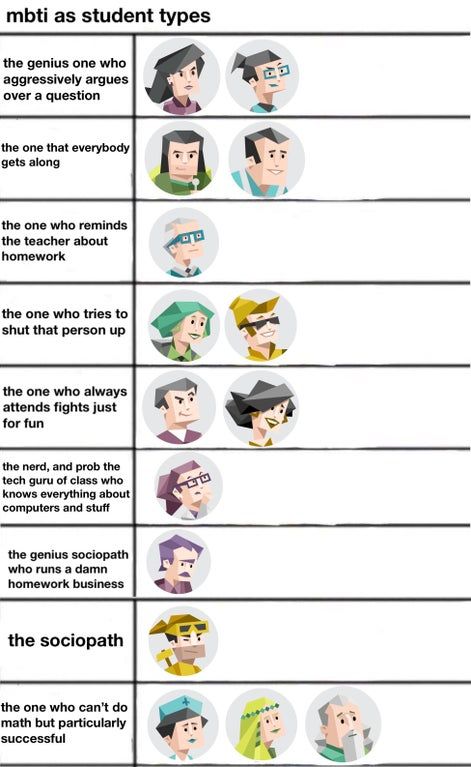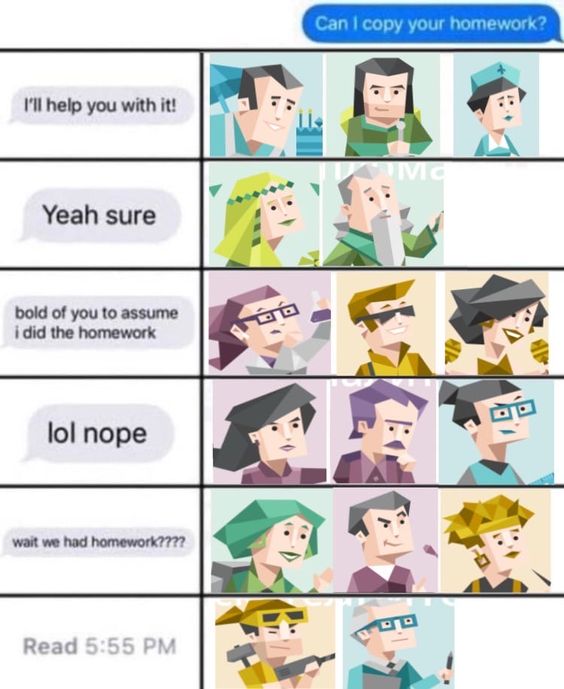You’ve probably noticed that, in the digital jungle, one phenomenon is swinging from vine to vine and taking the web by storm: the Myers-Briggs Type Indicator (MBTI). If you do not know what this is yet, you might have seen certain “codes” next to or below people’s profiles, such as INFJ(-A), ISTJ, ENTP, etc. These codes give an impression of what someone’s personality is like. These codes are derived from the 16personalities website. On this website, an elaborate personality test is provided and after making this personality test, you will get your “personality type”.
This personality test is said to be highly accurate, which might explain its popularity on the internet. I tested it myself, and I felt understood when I read the description of the result I got. A lot of things started to make sense to me. But it’s not just the accuracy; it’s also the simplicity. It’s like having a personalized user manual for my own behavior and that of the people around me.
If you’re still scratching your head about what MBTI exactly is and how it works, let me break it down. MBTI is a four-letter code that encapsulates your unique personality traits. Each of those four letters corresponds to one of the four dichotomies:
– Extraversion or Introversion (where you get your energy)
– Sensing or iNtuition (how you gather information)
– Thinking or Feeling (how you make decisions)
– Judging or Perceiving (how you deal with the outside world)
Combine those four letters, and there is your MBTI personality type. But what makes this internet craze even more intriguing is how these letters go on to define you in fascinating ways. For instance, if you’re an INFJ, you’re considered the “Advocate” or “Diplomat.” If you’re an ISTJ, you’re the “Inspector” or “Sentinel.” Each type comes with its own quirks, strengths, and idiosyncrasies. But that’s not all, it can be further broken down into -A or -T. “A” stands for Assertive and “T” stands for Turbulent. So each personality type is further divided into either A or T, such as INFJ-A or INFJ-T.
Knowing your MBTI can be beneficial in terms of maintaining relations, but we also have to keep in mind that not everything is black and white. For example, ENFJ is known for having some serious manipulation skills, but that does not mean that every ENFJ you will meet is that skilled in manipulation or would even use it. So while MBTI can give us an overview of someone’s personality, we should not take everything too literally.

What I enjoy the most about the explosion of MBTI on the internet are the memes. The memes often feel accurate and funny to me, and I enjoy going through them a lot. There are big communities on Facebook and Reddit that are solely dedicated to MBTI and even communities for just one type of personality, which is amazing.

So, what’s your MBTI type? If you haven’t hopped on the MBTI bandwagon yet, you might just discover it’s like your personal cheat code to understand yourself and those you know a lot better. The test is available here. Feel free to share your personality type in the comments below.
I am INFJ-T 😀



I just took this test after having taken it months ago but never writing down the code and thus forgetting ‘what code I am’. Turns out I am an INTJ-T! I will never not be skeptical about those tests though, since I find it hard to truly believe that the amount of correctness I address to the agreement between the statement given and how I see myself. Besides that, there is also the question of how I think I am, also is how others think I am, but that might be a more philosophical question…